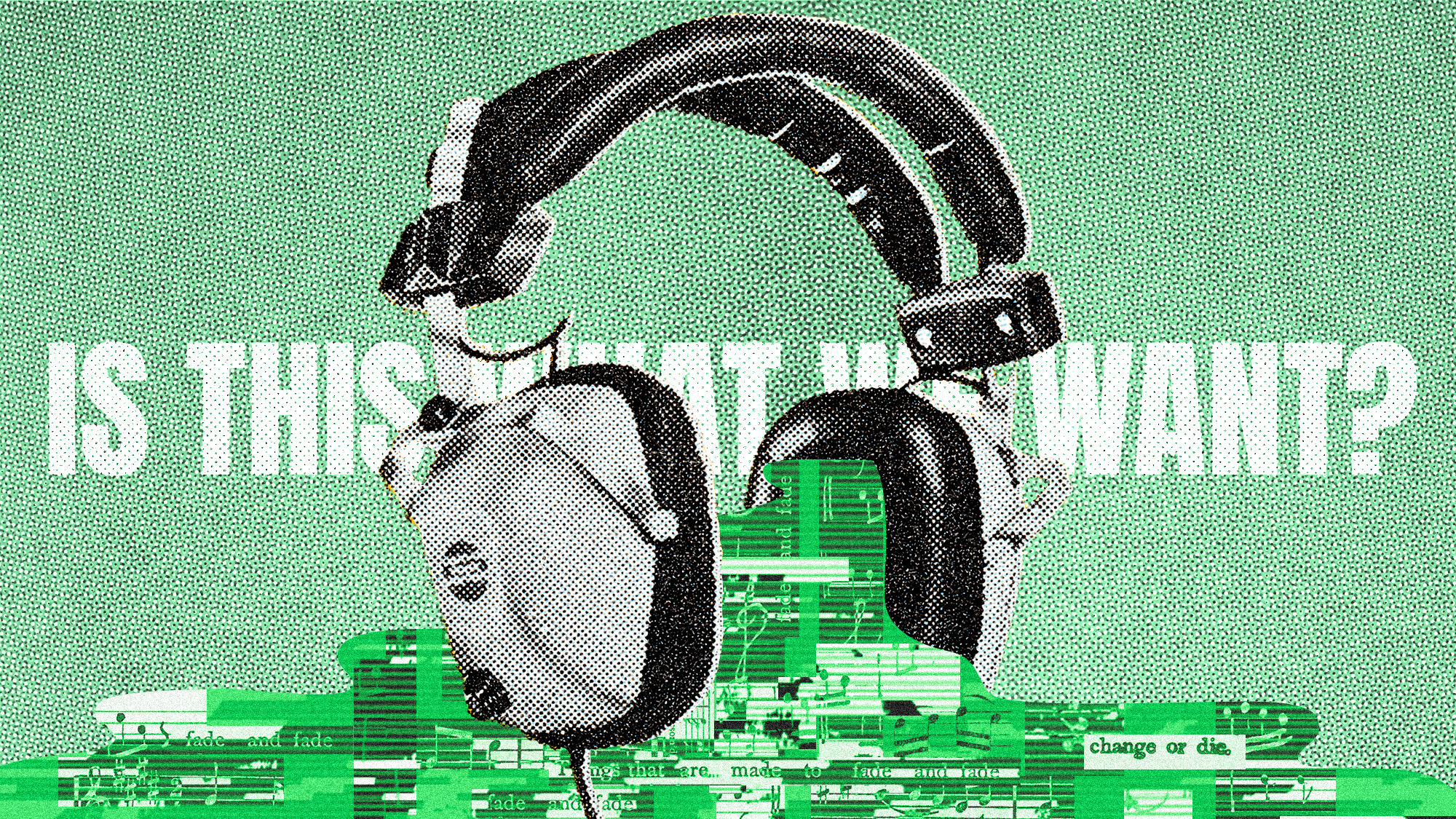AI freedom vs copyright law: the UK's creative controversy
Britain's musicians, artists, and authors protest at proposals to allow AI firms to use their work

A free daily email with the biggest news stories of the day – and the best features from TheWeek.com
You are now subscribed
Your newsletter sign-up was successful
UK musicians have released a silent album as part of a wave of protests over plans to change UK law to make it easier for tech companies to train artificial intelligence models on artists' copyrighted work.
Kate Bush, Damon Albarn and Annie Lennox – among the 1000 musicians behind "Is This What We Want?" – are hoping to highlight what they say is the threat posed by AI to their livelihoods, and those of other artists, journalists and authors working in the UK.
How might the law change?
"Britain's creative sectors are the envy of the world – and a major contributor to this nation's global soft power over the past century", said Oliver Duff, The i Paper's editor-in-chief. Together, they also contribute around £125 billion a year to the British economy. This is "no accident" but rather the result of the UK's "gold-standard" copyright laws, "which have helped to attract and nurture creative talent", who can feel "confident that their work has lasting value".
The Week
Escape your echo chamber. Get the facts behind the news, plus analysis from multiple perspectives.

Sign up for The Week's Free Newsletters
From our morning news briefing to a weekly Good News Newsletter, get the best of The Week delivered directly to your inbox.
From our morning news briefing to a weekly Good News Newsletter, get the best of The Week delivered directly to your inbox.
The current copyright law is "very clear", said an editorial in The Guardian: text and data mining – the scraping of content used to train and feed generative AI models – is unlawful for commercial purposes, without a licence. "The principle that original material cannot be ripped off, and that creative people have rights over their work is widely understood and accepted."
Now, Labour has signalled an intention to change these laws to "make it easier for AI companies to use British creative content without payment or permission", said The i Paper. The government has been consulting on proposals that include a so-called "rights reservation" system, where every company, artist or author would need actively to "opt out" of having their work used and copied by tech groups to train their AI models.
According to a statement from the Department for Science, Innovation and Technology (DSIT), the UK's "current regime for copyright and AI is holding back the creative industries, media and AI sector from realising their full potential – and that cannot continue".
But these proposals have been "framed in terms that are far too favourable to big tech", said The Guardian. And others have pointed out that "it is not possible for an individual writer or artist to notify thousands of different AI service providers that they do not want their content used", said the BBC.
A free daily email with the biggest news stories of the day – and the best features from TheWeek.com
What has the reaction been?
The proposals have been met with a "co-ordinated wave of protests" from thousands of British musicians, artists, authors and journalists, said the Financial Times.
Today, the last day of the government's consultation, every UK national and regional news brand is running the same "Make it Fair" cover "wrap" and homepage takeover – a first for the industry.
And, in an open letter to The Times, artists, writers and musicians, including Andrew Lloyd Webber, Sting, Paul McCartney, Kate Bush, Ed Sheeran, Elton John, Kazuo Ishiguro and Stephen Fry, have said that the proposals would "smash a hole in the moral right of creators to present their work as they wish".
Britain's creative industries "want to play their part in the AI revolution", the letter said, but there is "no moral or economic argument for stealing our copyright. Taking it away will devastate the industry and steal the future of the next generation".
The "extent of the anger" over these proposals creates difficulties for the government, as it seeks to "boost its tech, and specifically AI, industries" in the face of the US charge for much lighter AI regulation, said the FT.
The risk is that, if the UK does nothing or makes changes in "a more restrictive" way – such as requiring artists to opt in, rather than opt out – we would be "falling for the worst of all worlds, where we have neither protected the creative industries nor got a domestic AI industry", a government figure told the paper.
The counter argument, of course, is that, without the work of artists, musicians and journalists, there is nothing on which to train the AI models in the first place.